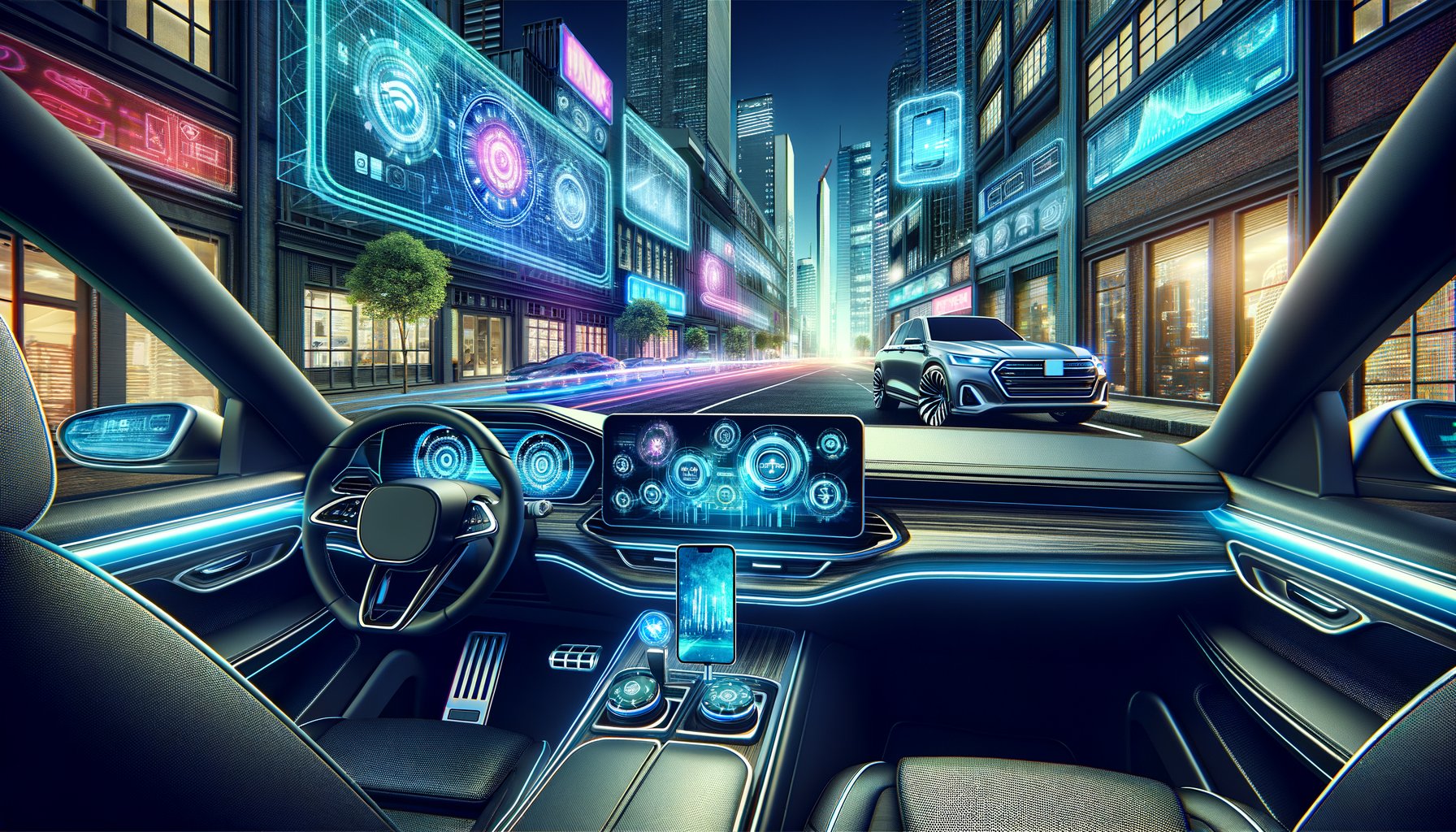Physical Address
304 North Cardinal St.
Dorchester Center, MA 02124
Physical Address
304 North Cardinal St.
Dorchester Center, MA 02124

In today’s rapidly evolving technological landscape, the fusion of smartphones with car systems has revolutionised our driving experience. This integration is more than just a convenience; it’s an essential part of modern motoring that enhances safety, navigation, entertainment, and vehicle diagnostics. Let’s delve into this fascinating juxtaposition of automotive engineering and mobile technology.
Smartphone integration in cars refers to the seamless connection between your mobile device and your vehicle’s infotainment system. This allows drivers to access their smartphone’s key functions directly from the car’s dashboard display without any physical interaction with their phone.
This technology leverages Bluetooth or USB connections for basic operations like calling or music streaming. However, for advanced functionalities like app usage or navigation, systems such as Apple CarPlay, Android Auto, and MirrorLink are employed.
Apple CarPlay and Android Auto are proprietary software developed by Apple Inc. and Google respectively. They offer a user-friendly interface on the car’s screen that mirrors selected apps from your smartphone. These platforms have standardised smartphone-car integration across different makes and models of vehicles.
CarPlay brings Siri voice control into play, allowing iPhone users to make calls, send texts, navigate via Apple Maps or stream music hands-free during their journey. Similarly, Android Auto employs Google Assistant for voice commands while providing access to Google Maps, messaging apps and various audio content.
While entertainment is an obvious benefit of smartphone-car integration, its contribution to driver safety is equally significant. Voice command features reduce distractions by enabling drivers to keep their eyes on the road while performing tasks like adjusting music or replying to messages.
Moreover, real-time navigation systems integrated with traffic updates can help drivers avoid congested routes and reach their destination faster. This not only saves time but also reduces the likelihood of accidents due to frustration or impatience on busy roads.
Another remarkable offshoot of smartphone-car integration is the ability to monitor vehicular health. Some advanced systems provide real-time data about your car’s performance, including fuel efficiency, tyre pressure, engine status, and more.
Dedicated apps can interpret this data and alert drivers about potential issues before they escalate into serious problems. This proactive maintenance approach can save money on expensive repairs while ensuring optimum vehicle performance at all times.
The future of smartphone-car integration is brimming with possibilities. With 5G technology ushering in higher speed and lower latency, we can expect even smoother operation of these systems. Additionally, as Artificial Intelligence (AI) becomes more sophisticated, voice assistants will become smarter and more intuitive.
Furthermore, as electric vehicles gain popularity, corresponding mobile apps will offer features like remote battery monitoring and charging station location services. The advent of autonomous driving will also see smartphones playing a crucial role in controlling various car functions remotely.
The integration of smartphones with car systems has transformed our driving experience by offering unprecedented levels of convenience, safety, and entertainment. As this technology continues to evolve in response to user needs and technological advancements, one thing is certain: the road ahead looks exciting!